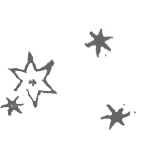Law and Political Science
Featured exhibit items for law and political science.
Exhibit Items
| 1 |
On the Christian Expedition to China Ricci, Matteo (1616) This book recounts the establishment of the Jesuit mission in China in the late 1500s led by Matteo Ricci. When Ricci predicted a solar eclipse in 1592 with greater accuracy than the astronomers of the Chinese court, Emperor Wan-li invited Ricci to Beijing. |
 |
| 2 |
The Philosopher of China Confucius, (1687) Confucius lived in the early 5th century BCE, roughly contemporary with the Pythagoreans and Presocratic natural philosophers. Confucius taught: “Do not do to others what you do not want done to yourself,” an early version of the Golden Rule. |
|
| 3 |
School of the Stars Capra, Baldessar (1606) Galileo kept the design of his engineering compass carefully guarded, yet a dispute over intellectual property rights ensued. In 1607, Baldassar Capra published under his own name a Latin translation of Galileo's Compasso, including instructions for making the instrument. |
 |
| 4 |
On Secret Writing Porta, Giambattista della (1563) Members of the Academy of the Lynx preferred to communicate with each other in code. Della Porta was the most accomplished cryptographer of the Renaissance. This work includes a set of movable cipher disks to code and decode messages. |
 |
| 8 |
100 Tales Boccaccio, Giovanni (1925) Eyewitness to Black Plague: In the opening section, the Florentine writer Boccaccio (1313-1375) recounted his observations of the plague. According to Boccaccio, most people died within about three days of the appearance of tumors. |
|
| 9 |
Commentary on the Book of Job Zuniga, Diego de (1591) Scientific results were often reported in theological works, as in this first defense of Copernicanism in Spain. In his commentary on Job 9:6 (misnumbered 9:5), Zuniga summarized evidence for Copernicanism from the precession of the equinoxes. |
 |
| 11 |
Critical Commentary on the Official Austrian Pharmacopoeia von Raszynya, Huszty (1785) Rebellion against the limitations of 18th century HMOs: The frontispiece to this work protests the limited medicines available from the official apothecary. The Pharmacopoeia Austriaco-provincialis (Vienna, 1774) mandated the medicines and remedies to be made available. |
 |
| 13 |
The New Almagest, part 2 Riccioli, Giambattista (1651) The frontispiece of Riccioli’s treatise depicts not two, but three major systems of the world. The Ptolemaic system rests discarded (lower right corner) because of the phases of Venus and Mercury (upper left corner). All-seeing Argus looks on, holding a telescope. |
 |
| 14 |
The Cow Pox Jenner, Edward (1798) The quest to eliminate smallpox through vaccination: Jenner, a student of John Hunter, knowing that milkmaids who contracted cowpox became immune to smallpox, surmised that pus from cowpox blisters could be used to vaccinate anyone against smallpox. |
 |
| 16 |
Army Sanitary Administration and its Reform under the late Lord Herbert Nightingale, Florence (1862) Organization of nursing as a profession: Florence Nightingale championed social reform and the organization of nursing as a profession. |





